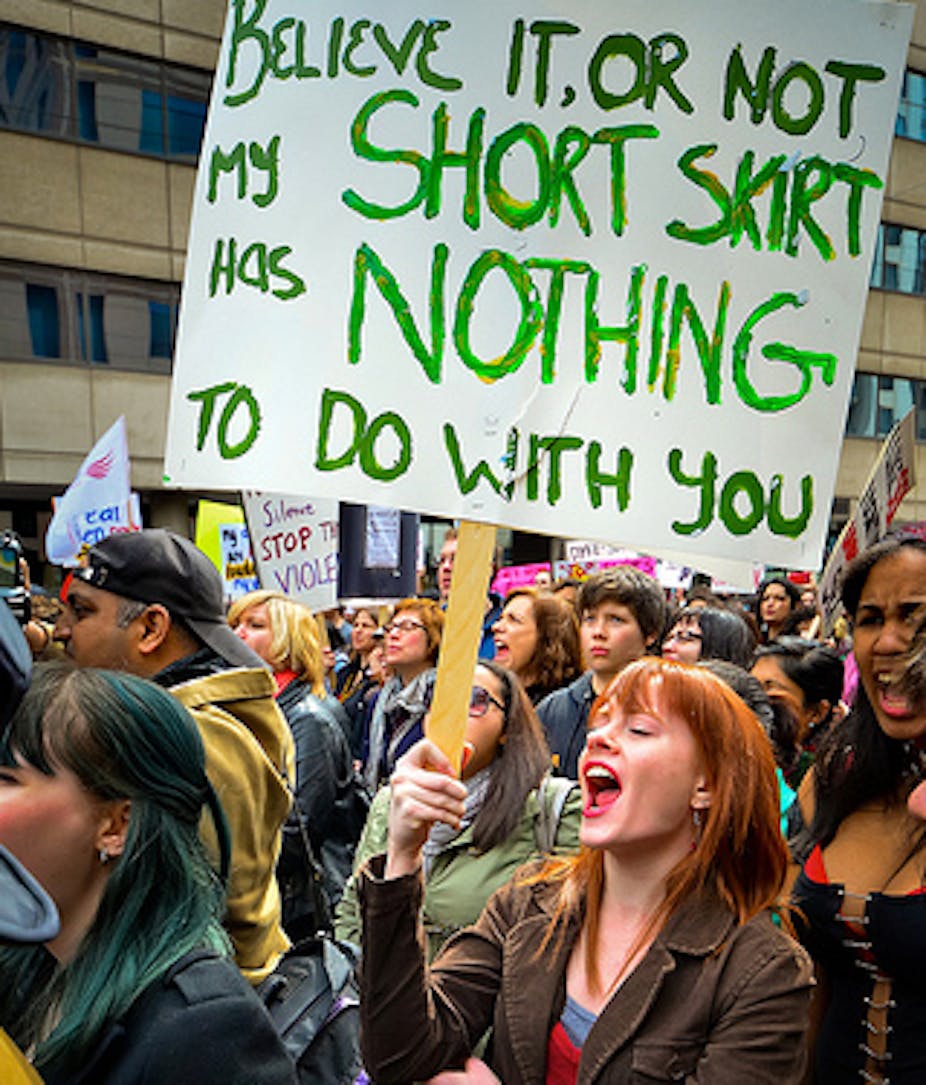Skimpy, scanty and suggestive attire have been one of the higher profile issues dividing feminists in recent years.
In one camp, feminists of the second-wave, radical ilk have loudly decried the “sexualised” apparel of girls and women, dubbing such fashion as symptomatic of internalised patriarchy: a signifier of women being complicit in their own objectification.
Third-wave, liberal-minded feminists populate the other camp and are thoroughly unconvinced that femininity – however expressed - is either simply a tool of oppression or one of empowerment, and instead support women’s choices about clothes and behaviour.
The movement of slutwalking is the fascinating phenomena of what happens when the political passions of the second-wave fantastically crash into the third-wave’s warm embrace of sexuality performed in all its spectacular, confronting and revealing glory.
Spontaneously instigated following a Toronto policeman’s spurious safety advice – “women should avoid dressing like sluts in order not to be victimised” – the slutwalking movement sees women taking to the streets to raise awareness about their rights to safety irrespective of their sartorial style.
Reminiscent of attempts to capture and rebrand traditional slurs like queer, dyke and c–t, slutwalking attempts to wrench the very word, the very dress style, that the Toronto cop claims places women in peril. By taking ownership of the word, of embracing the label, women - in all their diverse ordinariness - are daring to both accept the slut slur and demand their rights to security.
On one hand, the need for such a movement in 2011 seems laughable. After decades of feminist awareness, decades of Take Back The Night marches, decades of legislation and decades and decades of public awareness, surely such a consciousness raising effort is anachronistic. Surely we’re beyond the need to state the bleedingly obvious that men are responsible for rape and not women.
And yet, as the Toronto buffoon aptly demonstrated, rape mythology isn’t something able to be relegated to the bad old days.
One of the ugliest examples from Australia occurred not so long ago in 2006 when a Muslim cleric not only blamed women for their own victimisation, but revoltingly likened them to meat:
“If you take out uncovered meat and place it outside on the street, or in the garden or in the park, or in the backyard without a cover, and the cats come and eat it … whose fault is it, the cats or the uncovered meat? The uncovered meat is the problem.”
Footballer Spida Everitt sent his infamous Milo Tweet in 2010 musing about a spate of sexual misconduct allegations and warning girls: “At 3am when you are blind drunk & you decide to go home with a guy ITS NOT FOR A CUP OF MILO!” Commenting on the very same scandal, morning television host Kerri-Anne Kennerley dared dub the female football groupies as strays.
In a world that likes to think of itself as so very modern, as so very evolved, and as so very politically correct, how very ironic it is that the amount of cleavage a woman is shows or how much attention she lavishes on a footballer is still enough to apparently downplay her victimisation. Enough to negate a man’s abuse of power, horrendous judgment and misogyny.
Women marching for their rights to be treated equally – under the law, in the zeitgeist, in the bedroom – is nothing new. The new, the fresh, comes from the label. The third-wave, to date, has received a bad reputation as the lazy, academic, anything-and-everything goes arm of feminism. Slutwalking proves this isn’t the case.
Depressing that we need to walk this way; triumphant that there’s enough of us still enraged to do it.

